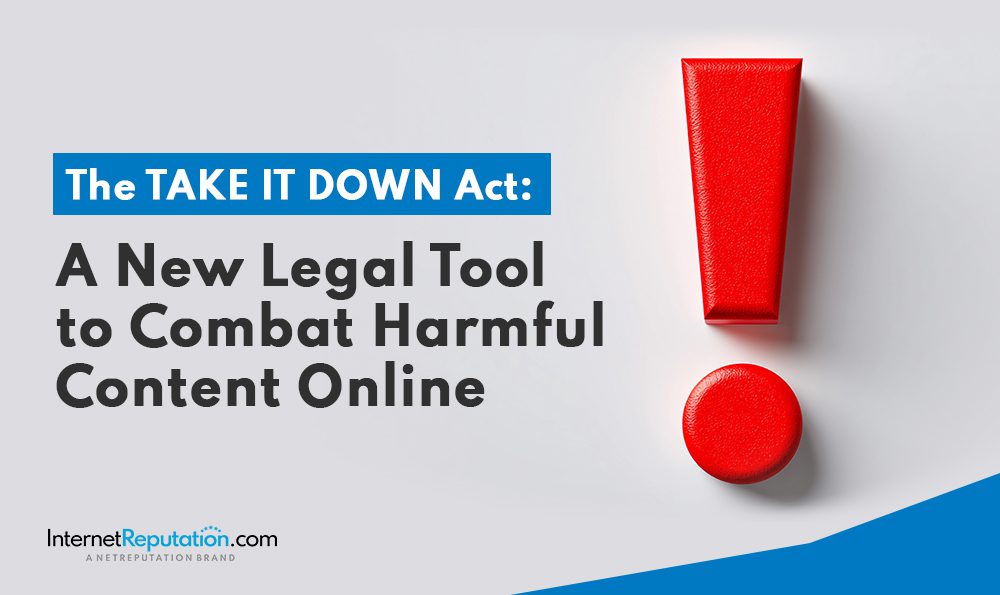Blogging: How to Write a Better Online Reputation Management Strategy

How does blogging fit into your online reputation management strategy? Get the latest on blogging, its value to your online reputation and how to build a blog that strengthens your digital footprint.
When asked to give advice to aspiring writers, novelist John Steinbeck replied, “Sorry – if I had any advice to give, I’d take it myself.”
As great as he was, John Steinbeck never wrote a blog post. There is good advice for writers – bloggers, in particular – that can help them write effective content that boosts their company’s profile and aids their Online Reputation Management strategy.
The key to an effective blog post is with writing that is lively and readable, and SEO friendly. Sounds simple, doesn’t it? It can be.
An Open Secret
There are a lot of blogs out there, but many of them don’t get read. They don’t elicit reader comments, no one shares them to Facebook, and no one tweets them. It’s an open secret, and it’s discouraging.
In spite of this, there are plenty of good reasons to blog. Writing regular blog posts about your business gives you credibility. Well-written posts are an excellent Online Reputation Management tool. They draw positive attention to your company and establish you as an authority within your industry.
Even those blogs with high readership, though, are not read very closely. That’s because most readers are looking for specific information, and scan posts quickly to find what they want.
What is a blogger to do? To write a blog post that people actually read, make sure that:
- Your posts are well-written
- You know your blog’s purpose
- You provide readers with substance
Well-Written
A well-written blog post is going to be read, while a poorly written one – well, why bother? Even John Steinbeck would agree with that (probably). Whether you’re blogging to promote a new product, gain new customers, build your company’s online reputation management strategy or merely provoke conversation, your post must be well-written, or no one will care.
Writing a blog post is a learnable skill. You must engage the reader, so aim for concise but lively prose that conveys your main points – the meaning of the post. Unless you’re a natural writer, it helps to structure your post with a good old-fashioned outline. With an outline, you can nail down your main points and place them in the best sequence, all before you ever write your first word.
Think of an introduction, then list the main points you want to make, and end it with a conclusion – what you want your readers to take away.
An outline can also help you develop headings and subheadings. These are important, because they help readers understand the main ideas in your post. And the more readers who get it, the more will like it, and the more your post will be shared.
Purpose
You want your blog to get and hold the attention of your readers. If readers like your content, they’re more likely to become your customers. If they already are, then you can deepen your relationship with them. You want to do more than just fill space.
A blog with good content gives you a platform. A platform helps you improve your online reputation and become an authority in your industry. And more content means more opportunities to rank in search engines, and to be shared to social media.
Substance
Your posts should have substance, but don’t confuse substance with word count.
Substance is about the insights you can share with your readers, and the depth of your arguments. And at the end of the day – or by the end of your post, at least – it’s about providing your readers with something of value.
Be sure to include at least one image, too. Content that includes at least one relevant image – a picture or infographic – is ninety-four percent more likely to be read.
Attract Search Engines
To bring the most traffic to your blog, it is important to have carefully chosen keywords sprinkled throughout the post. A keyword is a word or phrase that attracts the attention of a search engine. It is chosen for its relevancy to your web page, and is an essential part of Search Engine Optimization (SEO).
While the keyword should be used prominently throughout the post, remember that you can overdo it. Like someone who thinks taking four aspirin instead of two will cure a headache faster, writers sometimes think that loading a post with the keyword makes it rank higher in SEO.
If only that were that simple! Alas, using a keyword frequently doesn’t make a post any more conspicuous. In fact, it can work against you by affecting the post’s readability. So use the keyword prominently – but not too many times.
Just as important, be sure to structure your post with headings and sub-headings. Search engines prefer blocks of text broken into logical chunks, the way this section is broken into a block of text headed “Attract the Search Engines.” That also goes for your main heading – the title of your post – which should include your keyword.
Know Your Audience
Who are the people reading your blog posts, anyway? It’s important to have an idea about who they are. Think of your readers as a broad market, and then try to break this target audience down a little further.
People who read this article, for example, are interested in any tips and tricks that will help them write more effective blog posts. You might expect its readers to include business owners who know the value of having a brand and are interested in finding better and more efficient ways to reach their customers.
By identifying your target audience, you can write content that better resonates with them, and draws them to your site.
Plan Ahead
Once you have a handle on keywords, who you’re writing for, and what you want to tell them, start thinking about the specific subjects you want to write about, and make a list. When the time comes to write, you don’t want to be casting around for ideas.
In our office, we keep a list of blog post topics written on a wall-mounted dry-wipe board. Everyone can see it and be in the loop. (We back up the list as a computer file, in case the overnight cleaning crew decides to clean up that board.)
Our list consists of:
- industry trends and innovations
- industry challenges
- work-related personal experiences
Your list of blog topics should consist of eight to ten ideas. They’ll keep you moving forward.
Final Thoughts: Blogging and Your Online Reputation Management Strategy
Your blog post must be well written. If there is a cardinal rule to blogging, this is it!
The suggestions outlined in this article aren’t comprehensive, and we can’t guarantee they’ll transform a little-read blog into an Internet sensation.
Like most writing, blogging is never easy. For help in creating effective blogs, contact InternetReputation.com. Our team has the experience to provide this essential part of your Online Reputation Management strategy.



